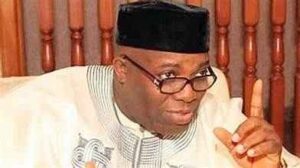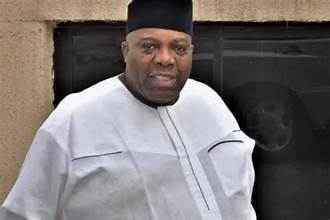Doyin Okupe, the former Director-General of the Labour Party (LP) Presidential Campaign, has articulated that President Bola Tinubu’s ambition to succeed Muhammadu Buhari is fueled by a deep desire to rescue and revitalize Nigeria.
In an interview, Okupe addressed the criticisms surrounding Tinubu’s “Emilokan” declaration, particularly the perception of his unpreparedness amid the deteriorating economy since May 29, 2023. He remarked, “Unfortunately, he has taken on this role during a particularly challenging period.”
Reflecting on their discussions, Okupe shared, “When I first met him, I questioned, ‘Are you sure you want to follow a Buhari administration, which has seen eight years of neglect, decline, and stagnation?’ He responded with a commitment to help Nigeria.”

Acknowledging his own involvement in the previous administration, Okupe stated, “While I played a part in bringing Buhari into power, it’s essential to recognize that if a leader falters, it’s regrettable. However, it takes courage to acknowledge past mistakes and strive for corrections, which is precisely what Tinubu is attempting to do.”
Okupe defended Tinubu against mounting criticisms, arguing that it is unjust to hold the president accountable for systemic issues that have persisted for decades or for the failures of the previous administration. “Can we really blame President Tinubu for problems that have developed over 30 or 40 years? Given the last eight years of national neglect, it’s simply not fair or realistic,” he asserted.
Emphasizing Tinubu’s reform agenda, Okupe pointed out that tangible results from such efforts will require patience. He stated, “Being a reformer, and without any prompting from him, I can confidently say that Bola Tinubu will need at least two years for his policies to take root and start yielding results.”
Drawing a parallel with the former Prime Minister of Singapore, Lee Kuan Yew, Okupe highlighted the necessity of a long-term vision in governance. “I’ve studied history, including Lee Kuan Yew’s impact on Singapore. He had the time—31 years—to transform his nation from a Third World country to a First World country, and he openly acknowledged that some of his actions were not ideal,” Okupe concluded.




